Things (a person, art, artists, sports, sportspersons, gold, diamond, precious gemstones, a certain way of doing something (starting from the way we brush our teeth to the way we run ICJ (International Court of Justice), attire/fashion, traditions, rituals, etiquette, pyramids, fantasies, technology, material or non-material things, rare paintings, religion, a certain scientific research, curtains on windows, a certain kind work/ profession/ business, the way we celebrate something and the reasons we celebrate them for, the way we run politics/ governments/ democracies, our relations, attachments, leaders, wax museums, movies, currency, ……) itself don’t have any intrinsic value, we make them appear so.


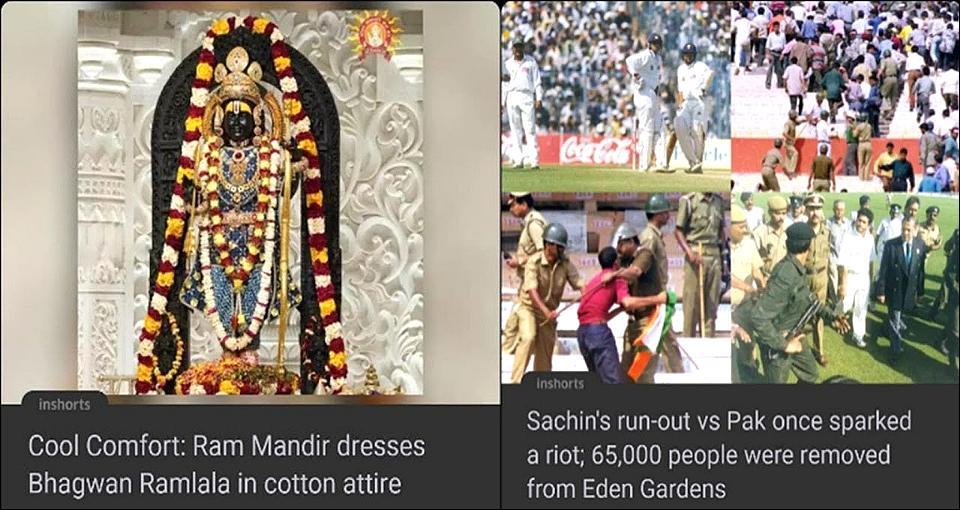
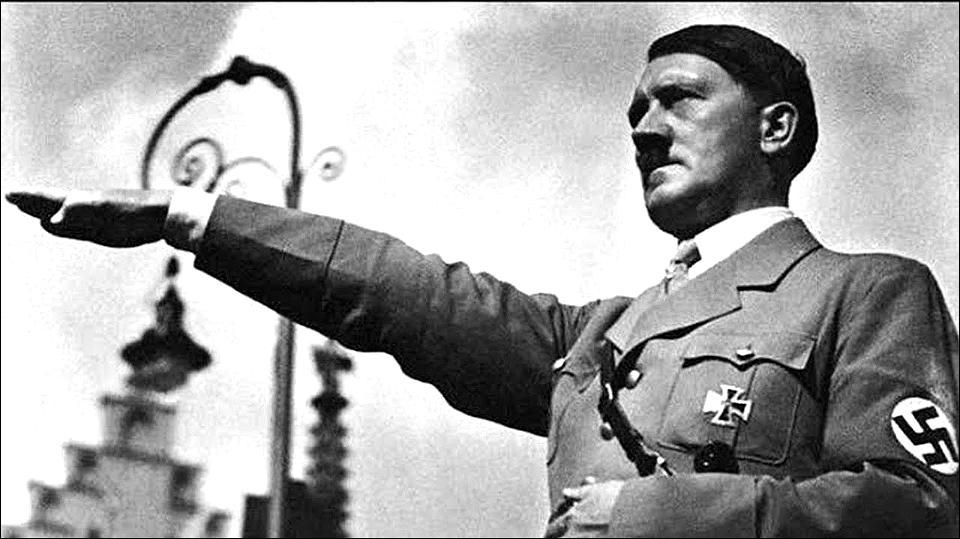
We (humans) are bestowed with the ability to make something out of nothing (Video 23), (Video 303). Hitler was just one of them. By making a bigger enemy out of Hitler, we blindside the true culprit. We notice others’ stupidity, but not our own.
People coming together in groups (as a cult, nation, club, family, …) mostly flourish the falseness. It’s an attempt of a mind full of fear to keep itself occupied. It needs something to identify itself with. Our chaos is hidden under distractions (distraction : an escape from the self).

We need someone or something above us to keep us sane (a false sense being sane that exists only in group/society as if two insane people tagging each other as sane), we need something to follow and we try to extract a sense of goal & security from those things. Maybe we are afraid to find out that we are nothing without all those things (the subject of attachment is irrelevant) (Video 43a), (Video 43b).
But what if we miss something far more important, for something trivial …? (Video 32) (Some things may not be trivial in human eyes but they certainly are from nature’s perspective).
Stupidity is the ability to look at meaningless things as meaningful (Video 32a), (Video 204).
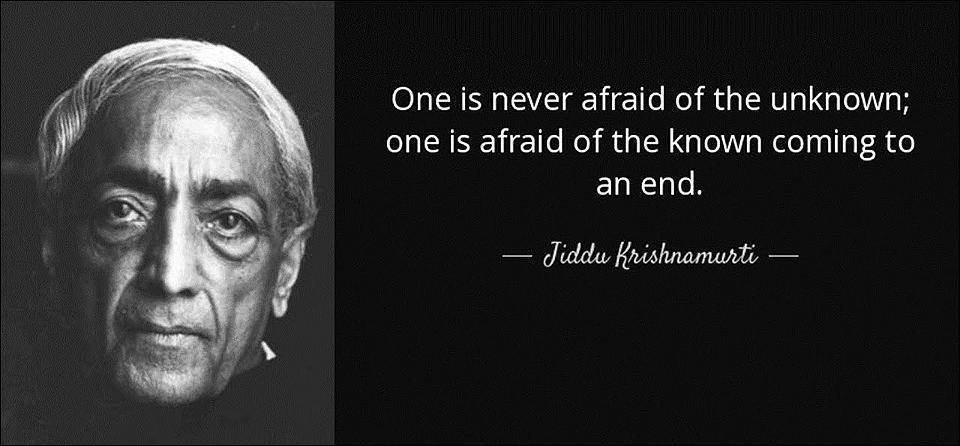

(Take a pause …….)
Why does someone’s death make us feel sad …? Is it their death that makes us sad or not knowing what to do without them is more painful …? Are we sad for them or for ourselves …? When someone dies in our family that we are dependent on or attached to, we just don’t know what to do without them. All of our actions (/ thoughts/ reactions) were tainted with that attachment and when the very foundation of our actions is disturbed, we are rendered completely directionless. Maybe that’s why other people don’t feel equally sad as us because their actions were independent of this specific person. They were not equally attached to the person we were attached to.
Then over the period we find something to do without them and go back to the way we were. Had we never come in contact with that person, we wouldn’t feel sad on his/ her demise (Depth of pain/ discomfort is directly proportional to the depth of attachment. The subject of attachment varies with person. It can be a person, sport (Video 117), a certain way of doing something, a profession, politics, examination, tradition, culture, material/ non-material things, politics, a certain examination, ….).

Is it the time that heals the pain or we just find something else to do with our life (without those people/ things) …? Maybe that’s the reason we don’t feel equally bad about the death of old people. To some extent, we are already detached from them. Does the misery reside in the loss of a specific person or our attachment/ dependence on him (either physical dependence or psychological dependence) …?
Is there anything wrong in having a relationship solely based on needs …?
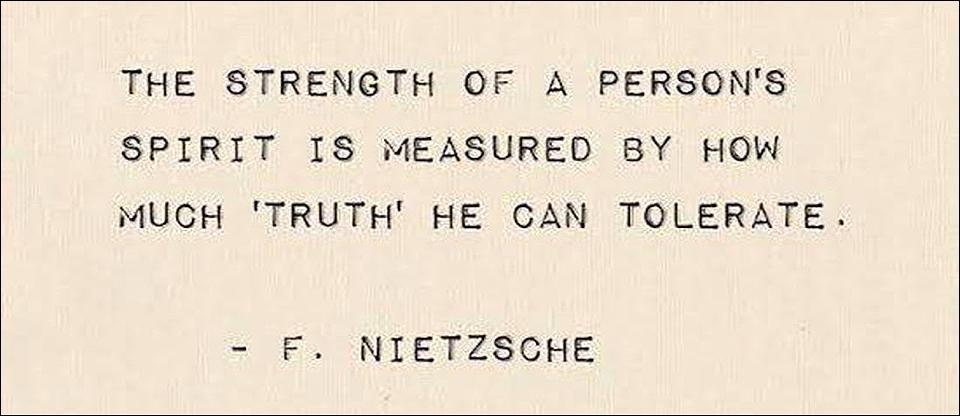
(Take a pause ….)
(Video 48a), (Video 48b), (Video 48c) Everything seems like a deception. People’s faces hardly reflect their state of mind (take a close look around yourself).
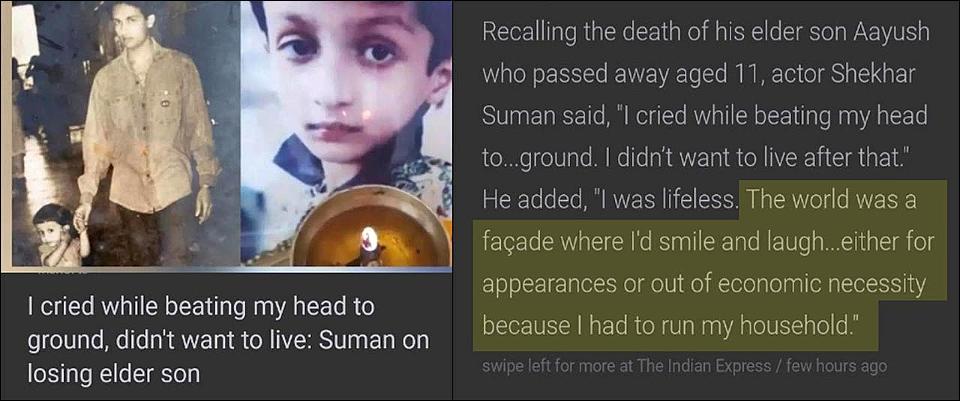
They are not necessarily evil. Maybe they are anxious or don’t know what to do with life, but we don’t see it on their face. People are constantly trying to build and maintain an image in their circle. All of my assumptions about what they are, are wrong (whether good or bad is irrelevant).

Maybe it is necessary so as to make a living because that’s the way the system is designed. But that’s not how I wish to live. We cannot live completely physically alone as well, even if we want to. We are not a chimpanzee or Sentinelese tribe (the most isolated tribe) who can make a living independent of complex systems. We depend on farmers for food and on doctors for health. Doctors in turn depend on pharmaceutical companies. These companies depend on engineers and scientists and so on. Efficient farming depends on technology and pesticides. All businesses above need transportation which in turn further depends on the design and manufacturing of IC (Internal Combustion) engines and we can trace all those things back to the ore and mineral industries from where metals are extracted which are used to build engines and vehicle fram. Things are woven and interconnected in a complex manner. System makes our life physically easy but psychologically unbearable as one must make efforts in the direction one doesn’t want to. To be a part of the system, one must submit to the system and in that submission, one is exposed to exploitation (if not me then someone else, but exploitation is there). Either we can be an exploiter (low probability event) or an exploitee (high probability event), but the world doesn’t give us the option to be neutral.
(Take a pause …)
Why do people spend a lot of money (and hence the time and energy associated with it) on functions/festivals, events, material things …? Do people really spend money on these things or the people around them (who admire those things) …? Why should we work for someone else …? Why let people control our decisions …?
(Video 64) & (Video 239) (watch full video if necessary. It may affect the depth of understanding)– We make our own life miserable by allowing others’ opinions, their way of living and outside situations to interfere with our thoughts (Spoken, unspoken/ implied expectations, our own passive observation of the outside world. They influence our behavior without us being aware of it). If we value outside opinions too much, they begin to dictate our thoughts/actions and while doing so we end up being their puppet.
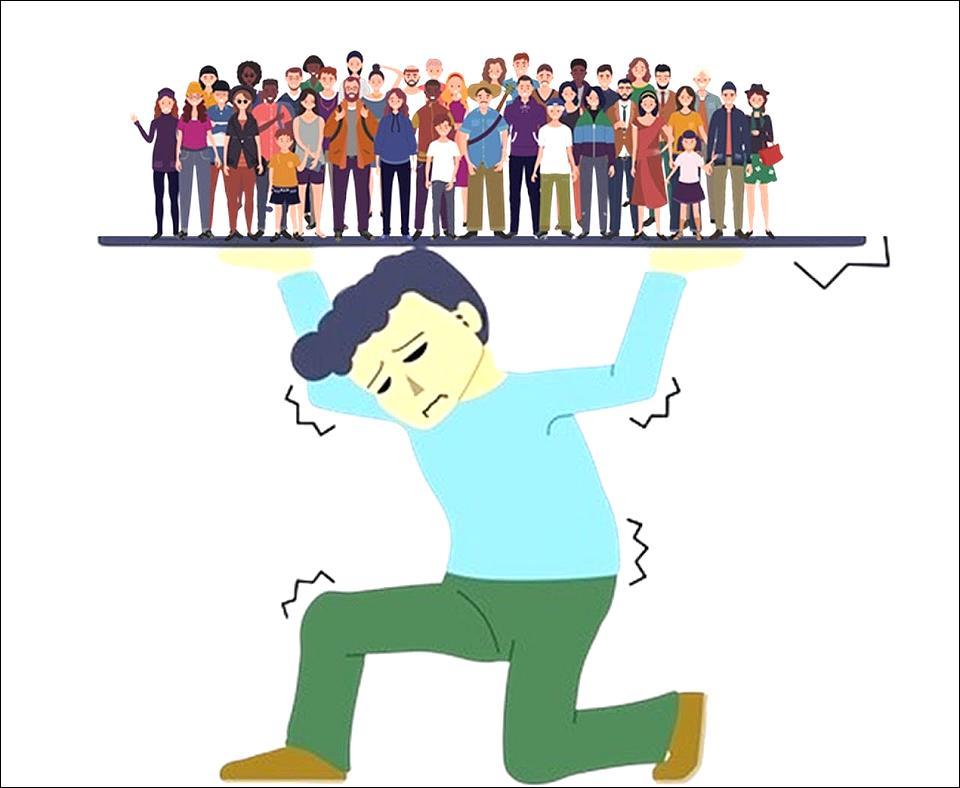

When we don’t know what is ‘Right or Wrong’, is when we get swayed by the world outside (in all segments of life: work, investment, decisions (small/big), ….). Many of such expectations act in such a subtle way that they go completely unnoticed. Like a Soviet soldier (during WWII), who is running towards the enemy with the surge of patriotism only to find out that he is being forced to fight the war (the moment he tries to desert the war, he will be shot at by his own people) (Video 58). But as long as he is marching forward willingly, it’s impossible for him to notice that compulsion. We think we willingly celebrate traditions, rituals, social conventions, formalities, etiquettes, manners, …. and the only way to find how we are indirectly being forced to do them is to try not to do them (may not be applicable in all situations equally but we feel its presence all the time). That’s when we get to find out how powerless we are (Video 22).
Some people might be doing all these things with zeal but that doesn’t make them right. In this case one might raise an argument ‘if people are not to do these things then what else is there to do’. If one doesn’t know what is right, at least he/she can start with not doing wrong things (here not doing wrong things also becomes a right action).
No one likes their life being controlled by someone or something outside ( bodily needs, system, society, …). Even kids resist strongly when they are forced to do something they don’t want to. Humans, in a way, are wired to seek freedom. So, we tend to resist anything or anyone that makes us bend the way it wants us to. Many people end up following the direction opposite to the one they are being forced to pursue and get diverted from doing the actual or necessary things. Just because one is headed (either in terms of action or thoughts) in the opposite direction out of envy, hatred, jealousy, …. or in the same direction (out of excitement, attachment) doesn’t necessarily make it the right or true direction. The ultimate right direction does not align itself with our feelings, emotions, desires or needs. We have to find it out (or stumble upon it) for ourselves.
Does life inherently lack freedom …?
( Take a pause …..)
Everything in life appears too random. How one is to find surety in such a randomness …? Is there anything ultimate to life …? How meaningful our plans and calculations are …? Do we have the right to bring a new life into the world without its prior permission …? None of us is personally bestowed with the responsibility to continue the human race. We do it because everyone does the same, but does that make it right …?
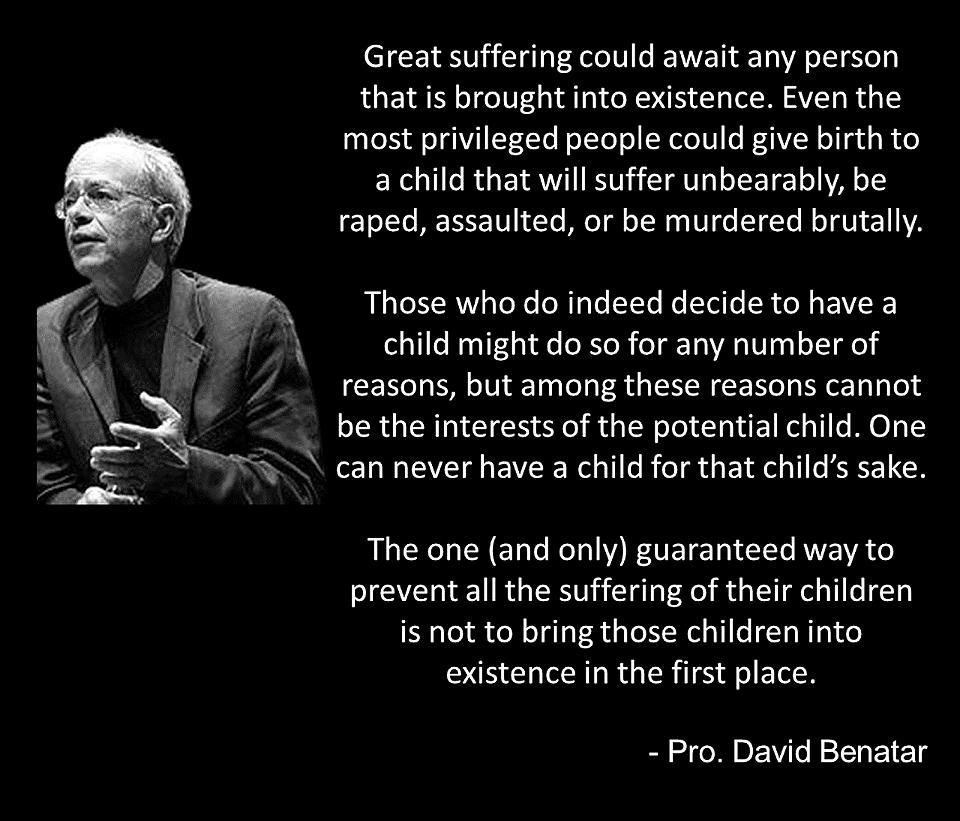
(Try not having kids and you may find out why you are doing what you are doing)
Parents don’t tell these things to their kids because they don’t want to lose upper hand in arguments. Is being selfish a pre-requisite to being parent …?.
If we don’t have the right to physically hurt someone just for our fun, then what right do we have to put someone in a position where they are bound to get hurt statistically (health – physical accidents & injuries (Video 283), genetic diseases,, in schools – all the distress of education (Video : kids don’t want to do homework) & anxiety and the pressure of exams, in life – making a living, randomness of events, constant uncertainty, sudden death of parents (Video-Click here), ….) …? Shouldn’t we be punished for committing such a crime …? Just because there is no outside authority to keep watch on us, does that make us right …?
Also, if parents are ‘OK’ about kids’ suffering (something that is well defined and expected with high probability in future), why is it wrong if kids are ‘OK’ with parents suffering …?. Just because we are powerful, does that make us right …? If kids were physically more powerful than adults, would they still listen to them and not revolt …? (Video 329).
That doesn’t necessarily mean people shouldn’t have kids at all. But having kids comes with the inherent responsibility to make the world a truly rational place.
Leave a Reply